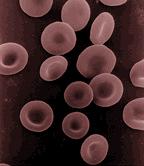What Does Iron Do?
Iron is a metal found on Earth which is necessary for most forms of life as well as for normal human physiology. It forms part of many proteins and enzymes that maintain a healthy body.
Iron in the human body has very important functions:

- Iron binds with hemoglobin, the protein in red blood cells that carries oxygen from the lungs to the rest of the body.
- Smaller amounts of iron are found in myoglobin, a protein that helps supply oxygen to muscle.
- Cells that fight infection depend on adequate stores of iron. This means if your iron stores are low, your body is more prone to infections.
- Iron is essential in the chemical reactions that produce energy from food. Therefore, if your iron levels are low, your body may not be able to use all the energy available.
Insufficient levels of iron intake can lead to iron-deficiency anemia. Impaired iron absorption or iron loss due to blood loss from menstruation, injury and gastrointestinal bleeding can also cause iron-deficiency anemia.
Signs of iron-deficiency anemia include:
- Feeling tired and weak
- Decreased work and school performance
- Slow cognitive and social development during childhood
- Difficulty maintaining body temperature
- Decreased immune function, which increases susceptibility to infection
- Glossitis (an inflamed tongue).
Foods rich in iron include corned beef, lean meat, offal (particularly in liver and kidney), beans, lentils, egg-yolk, all dark green vegetables, prunes, and raisins.
Your body is able to absorb only a small amount of the iron in foods that you eat. Up to 22 percent of the iron in meat is absorbed, while only 1 - 8 percent is absorbed from eggs and plant foods. Iron absorption can be further reduced by tannins (e.g., teas) and phytates (found in nuts, grains, and seeds). Citrus fruits, however, can form complexes with iron that increase absorption.
Note that you shouldn't take iron supplements without having your iron saturation and ferritin levels tested first. Too much iron in the body, called iron overload, can damage a number of organs including the heart, liver and pancreas.
|